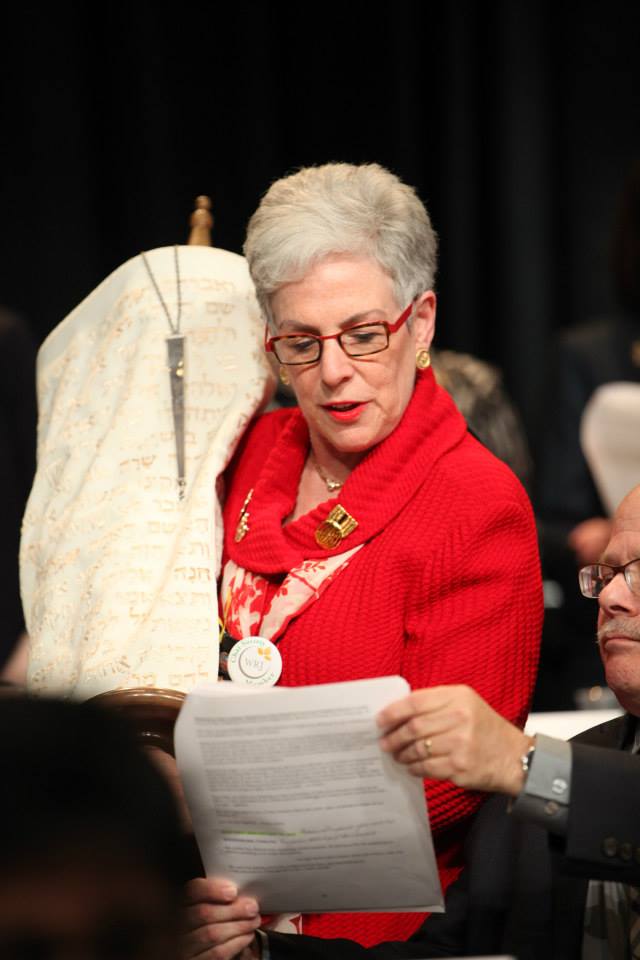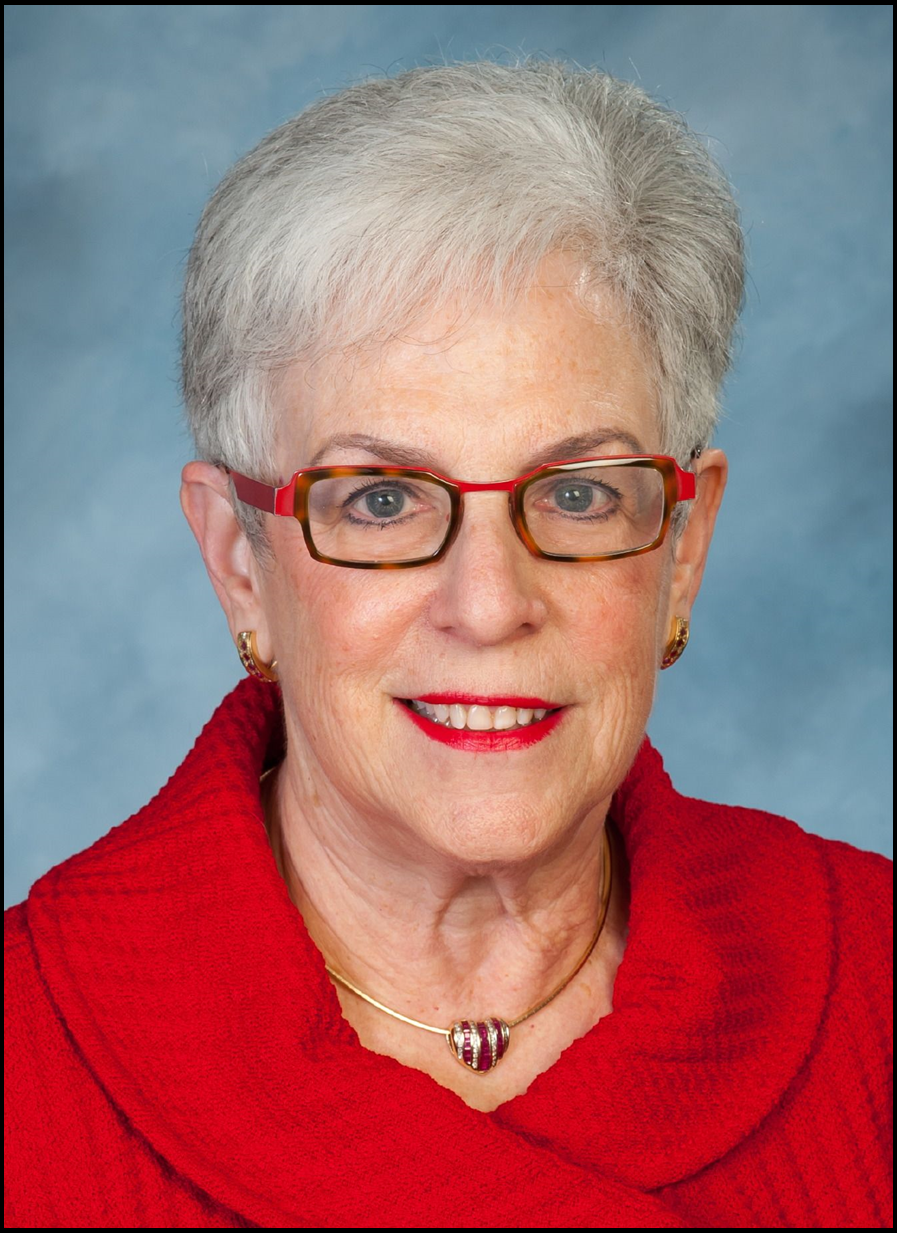
Growing up at Baltimore Hebrew Congregation, we, at least the girls, had little understanding of how Torah was really the centerpiece of Judaism. I was very involved in the youth group and other programs, yet the emphasis was on ethics and social justice without knowing the basis in Torah.
When I married and moved to Gastonia, North Carolina, I immediately became involved in the little congregation and its sisterhood-Hadassah. I was later tapped by my mother EB Hirsh and Rickie Behrend, both of blessed memory, to become a vice president of the Mid-Atlantic district of the National Federations of Temple Sisterhoods, now called Women of Reform Judaism. They were looking for someone from North Carolina. I had no idea how this opportunity would enrich my life.
It was shortly after Sally Priesand was ordained as the first female Rabbi in the United States. It was an exciting time when sisterhood women were encouraged to take their places as leaders in their congregations as well as to begin studying Torah. It was a wonderful experience for me to learn from other Jewish women in NFTS and to begin to study and interpret Torah.
Over the years, as I travelled through the mid-Atlantic district and later as a WRJ officer and president to visit sisterhoods, I incorporated a part of that week’s Torah portion into my talk or workshop. I began to collect Torah commentaries and Torah sources.
WRJ made a deliberate decision to help women become comfortable with using and studying Torah. In the early 1990s, a think tank of Jewish women scholars, outstanding women rabbis, and WRJ leaders convened to contemplate the creation of a Women’s commentary.
- What would it look like?
- Who would take the lead?
- Who would write the commentary?
- How would our commentary be different from others?
I was so thrilled to be a part of these experiences. The WRJ president at the time and I interviewed a few Jewish women scholars to determine the editor. I had the honor of attending a few editorial meetings when the group was determining the format of the commentary. I could take notes to report back to the WRJ Board, but I could not speak in these meetings.
The completed copy, “The Torah: A Women’s Commentary,” was written exclusively by over 100 Jewish women scholars, rabbis, educators, and cantors. It now serves as a compliment to the Plaut Commentary that we use in our sanctuary. We, the Women of Reform Judaism, like to say our commentary helps to fill the white spaces where women were so often left out of the Torah.
During this same time, WRJ commissioned the writing of a new Safer, or Kosher Torah, to travel in what I call WRJ land. I had the privilege of co-chairing this 4-year project, accompanying the scribe across the country, raising money for WRJ, and learning about the many aspects of the production of a Torah. When we took the completed Torah to different WRJ events, it was amazing to me how many women had never looked inside or even touched a Torah.
One of the most memorable experiences of my WRJ career and my life was the privilege of filling in the first letter, Bet, to begin the writing of the WRJ Torah and then filling in the last letter, Lamed, at the completion of the Torah at a special WRJ ceremony with Jewish singer-songwriter Debbie Friedman.
Dayenu—these Torah and other WRJ experiences would have been enough in my lifetime.
During this time and because of my knowledge, past sisterhood president, Carol Caplan z’’l, and I encouraged our sisterhood to pay to climatize the Baltimore Hebrew Congregation ark to better preserve our Torahs. I also learned that our Holocaust Torah at my temple was funded by my great-grandmother in 1953 in memory of my great-grandfather who had died that year when our rabbi brought the Torah back from his trip to Germany.
Again, Dayenu—that would have been enough.
Yet at the end of my term as WRJ president I was asked to join the leadership of the World Union for Progressive Judaism, the umbrella organization that includes Reform, liberal, progressive and reconstructionist congregations and communities from around the world. It was a time when small fledging non-orthodox communities mostly in eastern Europe and in the Former Soviet Union, and later in Latin America, were identifying with the World Union. They had no money, no place to be together, no Torahs, no rabbis and little knowledge of Judaism, and they wanted to identify and worship as Jews.
Thus, the World Union assisted them, created programs, raised money and started the Torah Project and a Twinning Project where a North American or European established congregation created a working relationship with one of these fledgling communities and either donated or loaned a Torah. The World Union also established Reform seminaries in Germany, Russia, and Argentina to encourage a greater growth of these Jewish communities.
Realizing that Baltimore Hebrew Congregation had an abundance of Torahs, I began pushing for us to give at least one Torah to one of these newly formed groups. Now 10-12 years later and after koshering nine of our Torahs, I am proud to be the co-chair of the Baltimore Hebrew Congregation Torah Scroll Committee who, at the request of the clergy and the BHC Board of Directors, researched and determined which communities would each be recipients of one of six of our 19 Torahs. They are:
- Univri Israelite Union of the Itajai Valley, Santa Catarina, Brazil
- Pearlstone Retreat Center, part of our local Federation, Reisterstown, MD
- Congregation Etz Chaim, Merced, CA
- Progressive Jewish Community in the Sha,ar Hanegev Regional Council, Israel
- Beit Daniel Tel Aviv, Israel (two non-kosher Torahs for study and community use)
Another special experience for me was the opportunity to present our Torah to the Brazilian community president, Jorge Crestani, and student rabbi, Ethel Scliar, as part of a Shabbat ceremony at a recent World Union Conference in Jerusalem in May, 2023.
Again Dayenu!
WRJ members are always encouraged to speak with their congregations to see if they, too, have a Torah that could be donated or put on loan for another WUPJ congregation. Together, we are able to make more overseas congregations whole.
Related Posts

Continuing to Educate and Empower People Together

My Challah-Making Experience


